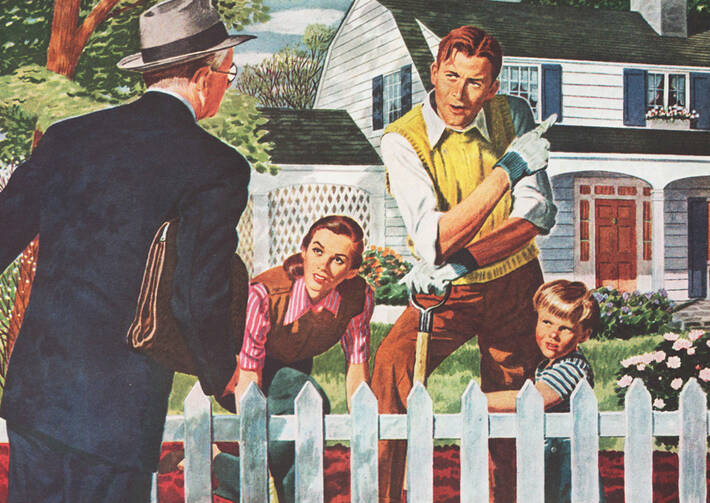As a word, “dream” does double duty, signifying that from which we must awake and that which must never die. The dreams of night, whether they bring delight or dread, dissipate at the dawn. The dreams of the day—to distinguish them from day dreams, when the soul saunters through dissipations—are the ideals and hopes that quicken our humanity. To abandon them would be an act of despair.
Martin Luther King Jr. called down our future when he told us,
Ta-Nehisi Coates is a national correspondent for The Atlantic. He grew up a black boy in urban Baltimore, “naked before the elements of the world, before all the guns, fists, knives, crack, rape, and disease.” His new book, Between the World and Me (2015), is addressed to his son. It’s not written for whites, though all of America should read it. As a black man, he writes that the American Dream is not a vision. It’s an illusion.
I was raised in the American Dream. Coates describes my childhood. I have no right to respond that the dream is vision rather than illusion, because I have never lived a day outside the dream. Instead, I must ponder what it means to stand rejected and to know that my accuser is right.
The Gospel is the good news of salvation, but it can be subverted by sin. As the word and work of God it cannot falter, cannot fail to be true, but as entrusted to us, it can, and often does, become something shallow, false in its superficiality. It can become the tonic we swallow to make ourselves feel better about the world, and, if the Gospel makes us content with this world, it becomes a poison we pour down the throats of others. The Gospel Jesus lived was whole, complete, consummated on the cross. The Gospel we live is ever something partial, something scattered by sin.
When the Gospel is authentic, it is a call, an offer, which is rejected. It is spurned by some because it cannot coexist with the sin of the world. Come the end of time, it will still not be the common creed of earth, at least not in the depths of the human heart. Jesus told his disciples
The servant of God must suffer in the world, because the world is alienated from God. It is fallen from its source, disfigured, disgraced, and it is bitter in its solitude. Isaiah described the fate of the holy one in this world:
Ta-Nahesi Coates is right. Or, at the least, this old Cub Scout cannot correct him. To be black in America is to know the dream is an illusion from which one must wake. The world isn’t going to change on its own. No amount of education or social activism will redeem it. It needs a savior.
But the savior we preach was crucified, and there is no salvation apart from his cross.
If you’ve never been persecuted for righteousness, if you’ve never been rejected because of your Gospel, then you must ask yourself—really ask yourself because if the answer comes too readily the question hasn’t been seriously posed—what is your faith? Vision or illusion? When it’s the latter, we all lose. And “for the many” it’s a bit of both. Hence the struggle.
Isaiah 50: 5-9a James 2: 14-18 Mark 8: 27-35








